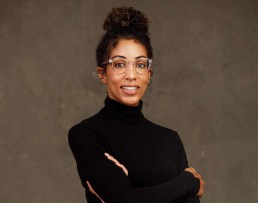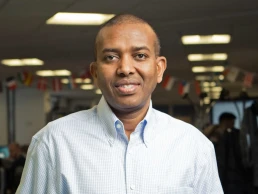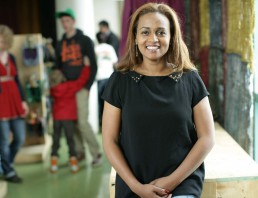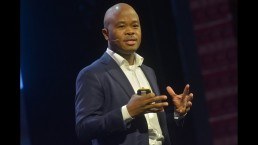As socio-economic, political, technical, and cultural developments spread across Africa, the continent is fast growing and changing.
However, the systemic problems facing Africa include; weather and climate change that has caused economic, social, and environmental consequences, abject poverty promoted by the Russia-Ukraine war and loss of jobs and unemployment because of the pandemic.
The Economic Outlook report Africa 2021 reveals startling data;
- 30 million people in Africa were pushed into extreme poverty in 2021 during the pandemic
- 22 million jobs were lost in 2022 because of the pandemic.
- Over 1.8 million people might be pushed to poverty following economic disruptions stemming from the Russia-Ukraine war.
Notwithstanding the many challenges Africa is struggling with, a new breed of innovators, social innovators, have taken it upon themselves to proffer social innovations to address some of these issues, especially as it has to do with unemployment and unemployability of youths, poverty, violence etc.
What is social innovation?
According to the Stanford Graduate School of Business, social innovation is developing and deploying effective solutions to challenging and often systemic social and environmental issues in support of social progress. Social innovation is not the prerogative or privilege of any organisational form or legal structure.
Let’s see some leading social innovators in Africa.
1. Maya Horgan Famodu

Maya Horgan Famodu is the founder of Ingressive, a consulting firm providing market entry/market ops services and tech research for corporates and investors. Over 50 venture capital firms and IT startups have engaged Ingressive LLC’s services. Clients have launched joint ventures through Ingressive market entrance services and made over 70 investments.
Clients have launched joint ventures through Ingressive market entrance services and made over 70 investments.
Also, she founded Ingressive Capital, a $10M VC targeting tech-enabled startups in Nigeria, Kenya, Ghana and Egypt. Ingressive Capital portfolio companies include Paystack, Bamboo, Carry1st, Mono, Tizeti, Lenco, Jetstream, 54gene, and OZÉ, among many others.
In 2020, Maya established a non-profit set up for her firm – Ingressive for Good – to equip young Africans in need with tech skills to help them impact and contribute to the development of Africa, socially and economically by providing micro-scholarships, tech training and talent placement for African youth. The non-profit has partnered with Google, Geneva, Data Camp, Zuri Training and a host of other tech companies to train over 100,000 people on tech skills.
Maya Horgan Famodu is a venture capital investor, entrepreneur, and 2x Forbes 30 Under 30 entrepreneur. She is committed to ensuring brilliant people, wherever they are located, have access to the resources they need to build wildly scalable businesses.
However, her journey into Africa’s VC industry was not smooth.
The Half-Nigerian recalls growing up with nearly nothing in a Minnesota trailer. Her father is a Nigerian pastor, and her mother is an American soldier.
She completed the Cornell University Prelaw Program, and Maya enrolled at Pomona College while working in the banking industry for JPMorgan Chase. She also worked in private equity research, advising companies trying to expand their operations to West Africa. Before founding Ingressive, Maya travelled to Southern Africa and Latin America to do economic research on emerging markets.
Maya left her private equity job in New York to go to Nigeria, hoping to set up her fund. However, at 23 years old and with just 18 months of experience in the industry, she didn’t get very far in finding backers.
Notwithstanding, in 2017, Maya started Ingressive as an investment advisory firm at age 25 to build her reputation in the industry and eventually launched Ingressive Capital in 2017. From there on, Maya emblazoned her trail as the youngest person to have launched a tech fund in sub-Saharan Africa and the first woman to do so alone in Nigeria.
2. Ismail Ahmed

An estimated 30 million Africans reside outside Africa, and many send money back home to ease their economic burdens. The World Bank reports that the cost of sending money to Africa is the highest globally; money transfers to sub-Saharan Africa typically cost 9.74 per cent of the total.
This was a pain point Ismail Ahmed intended to explore. However, before he founded his business, Ahmed had long understood the need to reform the remittance industry.
This is the backstory.
Ahmed was awarded a World Bank scholarship to study in the United Kingdom. After he left Somalia for the UK, Ahmed intended to send cash to his relatives back home while pursuing his PhD at the University of London. However, every transaction required a risky trip across London to agents who charged exorbitant fees to send relatively modest amounts to Africa.
Ahmed found it upsetting that a billion-dollar industry would rip off African clients who want to send money to their families in a continent that is the poorest in the world.
Ahmed worked for the United Nations Remittance Programme in the UK. His responsibility was to assist African money transfer companies in adhering to strict anti-money laundering regulations in the wake of the 9/11 attacks. Ahmed discovered corruption occurring in his department at this time and reported it. But, instead of being commended, Ahmed received a backlash from the UN. He was reassigned to Dubai, and he was denied his due privileges.
He quit the job in 2007 and bagged his MBA at the London School of Business (2008 – 2010), simultaneously starting his startup – WorldRemit.
His stint at the United Nations Remittance Programme proved useful as he gained the knowledge, expertise, skills and connections he needed to establish his startup there.
Over the last ten years, WorldRemit has grown to serve 5.7 million customers, using 70 different currencies, across 130 countries worldwide. WorldRemit has made it convenient to send money with various options for sending transfers to loved ones overseas, including bank transfer, mobile money, and cash pickup.
3. Bethlehem Tilahun Alemu

Bethlehem Tilahun Alemu was raised in the Zenabwork village, a rural area of extreme poverty. Like many social entrepreneurs, she saw an opportunity in the face of difficulty. Alemu observed that many of the unemployed individuals she grew up with possessed impressive artisan skills; this inspired her to look into how she could harness their craftsmanship for the good of the community.
Soon after earning her accounting degree from Unity University in Ethiopia, she persuaded her husband and her family to provide some start-up money for a social venture. In 2004, Alemu launched soleRebels, a line of ethical and eco-friendly footwear.
Alemu started a footwear business because she saw it as a perfect way to introduce the world to many of Ethiopia’s traditional eco-friendly craft heritages and artisan skills.
The shoes are a contemporary recreation of the renowned Selate and Barabasso shoes that ancient Ethiopian soldiers wore to defend their nation against European soldiers.
Alemu named her company soloRebels to honour the soldiers and reflect Ethiopian culture and heritage.
Alemu has won numerous accolades and prizes for her outstanding work; the 2012 Schwab Foundation Social Entrepreneur of the Year, a 2011 Young Global Leader from the World Economic Forum, and one of Forbes magazine’s 100 Most Powerful Women to Watch in 2012. She sits on the board of the African Innovation Foundation, which invests in African-led solutions to problems facing the continent.
4. Fred Swaniker

Fred Swaniker is a Ghanian serial entrepreneur, leadership expert and a former McKinsey consultant. He has been recognised by the World Economic Forum as a Young Global Leader and was listed by Forbes magazine among the top 10 young power men in Africa in 2011.
Over the past 16 years, he has founded and led the pre-university African Leadership Academy based in South Africa, the African Leadership University with campuses in Mauritius and Rwanda, the African Leadership Network, ALX (a next-generation leadership development platform) and The Room (a global community of top talent).
What is his story?
Swaniker lived in four countries in Africa before the age of 18, including Ghana, Gambia, Botswana, and Zimbabwe. At just 17 years old and on a gap year before beginning university, he was appointed headmaster of a school in Botswana. He has worked in Nigeria, Ghana, Tanzania and South Africa as an adult.
Living in these countries formed his belief that Africa’s problems are squarely down to a failure of leadership, having experienced firsthand the quality of leadership across the African continent and the consequences of this. In his mind, what Africa needed most was ethical and entrepreneurial leadership in transforming the continent.
While studying at Stanford, she conceived the vision of creating a world-class educational institution. He shared this vision with his co-founder Chris Bradford, and they wrote the business plan for African Leadership Academy.
Fast forward to his graduation in 2004, he launched African Leadership Academy (ALA). The institution aims to transform Africa by developing a powerful network of over 6,000 leaders who work together to address the continent’s greatest challenges, achieve extraordinary social impact, and accelerate the continent’s growth trajectory.
The ALA academy officially opened its doors for its inaugural class in June 2008 at their Honeydew campus outside Johannesburg. Famous alumni include Tom Osborne (founder of Greenchar in Kenya & also an Echoing Green fellow) and William Kwamkwamba.
In subsequent years, Swaniker established African Leadership University (ALU), African Leadership Network and Business School, and the Room.
Swaniker has been recognised by many global figures, like Barack Obama, for his work in Africa. He is a TED Fellow (2009), a World Economic Forum Young Global Leader (2012), and has been named one of the Top Ten Young Power Men in Africa by Forbes (2011), one of the top 15 social entrepreneurs in the world’ by Echoing Green (2006), one of the “100 Most Influential People in the World” by Times (2019). Swaniker has received three honorary doctorates—one from Middlebury College in the USA, one from Nelson Mandela University in South Africa, and one from Macalester College in the USA.
Fast Company has recognised the African Leadership Group among the 50 most innovative companies in the world.
5. Anne Githuku-Shongwe

Anne Githuku-Shongwe is the founder and CEO of Afroes Transformational Multi-Media & Consulting. Like the African Leadership School, Afores is based in Gauteng, South Africa. The company wants to “position African youth for productive futures through innovation in skills acquisition, engagement, and linking to opportunity.”
To achieve this, they provide gamified solutions that address certain socioeconomic problems like youth unemployment, gender-based violence, child protection & safety, and environmental concerns.
Job Hunt is one such game that seeks to educate players about the world of online work. The user is welcomed into an online environment where they must compete for jobs, finish them on time, earn money, and manage their abilities and resources.
Numerous awards and honours have been bestowed upon Anne Githuku-Shongwe and her business. These include being nominated as a fellow at the Unreasonable Institute in 2011, receiving the Cariters Women Initiative Award and the Schwab Social Entrepreneur of the Year 2013 award from the World Economic Forum.
What is her story?
Conversations with her children inspired Anne’s business, Afroes (the name is a play on the terms “African Heroes and Heroines”). She was concerned that kids were not exposed to any positive African media and that the pervasively negative messages about Africa in the Western media influenced their ideas and aspirations for the continent.
While observing her son play ‘Civilisations’, a computer game, s he realised then that she needed to use video games’ influence to spread uplifting messages to African children.
She ended her 13-year stint with the United Nations Development Programme to found an interactive digital media company that offered young people all over the continent mobile phone entertainment centred on Africa.
Anne had to learn everything about computer gaming from the beginning, including how to create highly appealing and engaging games specifically for mobile phones that were inexpensive and accessible to African children and their families.
Today, Afroes has developed several mobile games with over 450,000 users designed to shape new choices and spark challenging discussions for African youths.
6. Kennedy Odede

Kennedy Odede is the founder of Shining Hope for Communities (SHOFCO). The initiative has an integrated model for urban slum transformation that links direct services like health care, girls’ education, and clean water with a community-based organising platform. SHOFCO provides community people with the tools to inform and direct the social change agenda, focusing on women and girls’ leadership.
Odede spent his formative years in the Kibera Slum, where he endured 23 years of extreme poverty. Odede, the oldest of eight children, began selling peanuts to help support the family. Kibera is home to more than 1.5 million people; it has no restrooms, clean water, roads, or schools. One in five children does not live to see their fifth birthday, and 66% of girls engage in sex for food, often as young as 6.
Odede realised he needed to take action to escape this precarious environment after seeing his mother suffer at the hands of his abusive father, his sister get pregnant at the age of 16, and many of his friends turn to life of crime and prostitution.
Inspired by the stories of his hero, Dr Martin Luther King Jr., Odede thought of how he could distract his friends from their sorrow and hunger. At the time, he had a job in a factory earning $1 for ten hours of work, from which he saved 20 cents to buy a soccer ball. What started as a means of distraction from their terrible realities in the slum gave birth to Shining Hope for Communities (SHOFCO).
Odede was one of the first people in Kibera to acquire an education from an American liberal arts university; despite having only received informal education, he was awarded a full scholarship to Wesleyan University in America. He earned honours in sociology and was the commencement speaker in 2012 before returning to SHOFCO full-time.
Today, SHOFCO is a leading provider of health care, WASH, food aid, and economic stability to over 2.4 million slum residents across 32 urban and rural slum districts in Kenya. SHOFCO is also at the forefront of the COVID-19 response. The Conrad N. Hilton Humanitarian Prize, the largest humanitarian honour given to nonprofits in the world, was given to SHOFCO in 2018, making the organisation the youngest-ever recipient.
Kennedy is multilingual. Aside from SHOFCO, he founded Teach for Kenya and has had op-eds published in the New York Times, Forbes, Guardian, Daily Nation, and Business Daily. He and his wife and business partner, Jessica, co-authored the New York Times bestselling book Find Me Unafraid: Love, Loss and Hope in African Slum.
Kennedy received the Echoing Green Fellowship, granted to the world’s top rising social entrepreneurs, and the Schwab Foundation for Social Entrepreneurship Innovator of the Year Award 2022 for his leadership with SHOFCO. He was awarded the Muhammad Ali Humanitarian Prize in 2014 and was listed among Forbes’ “30 Under 30” list of the top social entrepreneurs. He is also a member of the Clinton Global Initiative, an Aspen New Voices Fellow, an Obama Foundation Fellow, a UBS Global Visionary, a Young Global Leader of the World Economic Forum, and a Global Future Council of the World Economic Forum.
Conclusion
The United Nations project that the population of Africa will grow to 1.467-billion by 2025, add a further billion by 2050 and climb to 4.185-billion by 2100.
It’s just a projection.
It could be more or less.
But, have you asked yourself what would be the state of Africa’s economy by 2025?
We have seen social innovators and entrepreneurs who are leveraging to the socio-economic challenges in the continent to proffer sustainable solutions.
But, there is still so much to be done.
Do Take Action is doing her bit to empower a critical mass of 1billion+ Africans to take action for Africa at the grassroots level.
Join us in this movement.
Click here to become a Grassroots Development Champion and take action in your community.